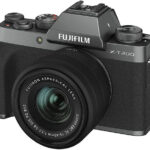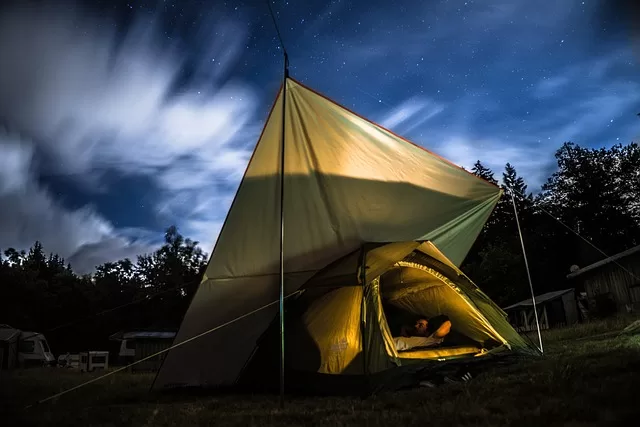Picture that you’re out enjoying some crazy things to do while camping with friends or just simply enjoying the outdoors and all it has to offer and then this disaster strikes! Let’s say a wildfire starts somewhere, or one of the campers with you suffers an injury, or maybe even a change in the weather condition like a severe thunder roll.
Now imagine you are not armed with enough knowledge of what to do in case of an emergency, like any of these. Not to sound too scary but you know at this point that your emergency preparedness while camping is what will determine your safety and preservation right? I mean we are not just talking about not enjoying your camping trip but a matter of life and death right now.
Knowing what to do in case of an emergency is very crucial for every outdoor enthusiast. From knowing what to pack in your first-aid and emergency kit checklist, to knowing how to use the item, as well as how to plan an enjoyable and successful camping trip and ensure campfire safety. This blog covers what to do in case of an emergency while camping, ranging from minor injuries to serious accidents, climate change, and natural disasters. It also offers tips on how to prepare for camping in a way that includes emergency preparedness against what could have possibly happened.
Conducting a Risk Assessment
Emergency preparedness while camping is really important, and conducting a risk assessment is a critical step in making sure that you’re prepared for any potential emergencies that may arise. The key to conducting a thorough risk assessment is to think through all the potential hazards and risks that you might face while camping, and then take steps to mitigate those risks as much as possible. By being prepared and proactive, you’ll be able to enjoy your camping trip with peace of mind knowing that you’re ready for anything that comes your way.
How to Conduct a Risk Assessment Before Heading out Camping
To start, conducting a risk assessment means identifying any potential risks or hazards that you might face while camping, and then taking steps to mitigate those risks as much as possible. So, the first step is to think about where you’re going camping, and what time of year it is.
- If you’re camping in an area with a lot of wildlife, you’ll want to take precautions to avoid encounters with animals. You might want to bring bear spray or a whistle to scare away any bears, and you’ll want to make sure that you store your food in a bear-proof container so that you don’t attract any hungry bears to your campsite.
- Similarly, if you’re camping during the winter, you’ll want to be prepared for cold weather and potential snow storms. You’ll need to bring warm clothing and blankets, and you’ll want to make sure that you have a way to start a fire to keep warm. You might also want to bring extra food and water in case you get stranded due to a storm.
- Other potential hazards could include things like steep or unstable terrain, dangerous weather conditions like lightning or strong winds, or even getting lost or injured while hiking or exploring the area. To mitigate these risks, you might want to bring a map and compass or GPS device, make sure that you have a first aid kit with you, and tell someone where you’re going and when you expect to return.
Planning and Preparation
Planning and preparation are crucial when it comes to emergency preparedness while camping. Here are some tips on how to plan and prepare for an emergency to help you know what to do in case of an emergency while camping. By packing essential items, knowing the location of emergency services, having a communication plan in place, and reviewing your emergency plan with your camping group, you’ll be able to handle any emergency situation with confidence and preparedness.
Pack Essential Emergency and First Aid kit
First and foremost, you’ll want to pack essential items that could be lifesavers in an emergency. This includes essential camping gear and items like a first aid kit, flashlights with extra batteries, blankets to keep warm, and emergency rations to ensure you have enough food and water in case you get stranded. It’s always better to pack too much than too little, so don’t be afraid to bring extra supplies.
Know the Location of the Nearest Hospital and Emergency Services
Not like you are planning for an accident or emergency to happen but it is important to know the location of the nearest hospital, clinic, or emergency services in case you need medical attention. It’s always a good idea to have this information handy, especially if you’re camping in a remote or unfamiliar area.
Have a Communication Plan in Place
You’ll also want to have a communication plan in place as part of your emergency preparedness while camping, just in case you get separated from your group or encounter an emergency situation. This could include things like bringing a cell phone with a fully charged battery and backup power bank, or even walkie-talkies if you’re camping in an area with limited cell phone service. You should also let someone outside of your camping group know your itinerary and expected return date, so they can notify authorities if you don’t come back on time.
Review Your Emergency Plan with Your Camping Group
It’s important to review your emergency plan with your camping group before you head out and make sure everyone knows what to do in case of an emergency. This could include designating someone to be in charge of contacting emergency services, reviewing basic first aid skills, and establishing a meeting point in case you get separated.
Handling Common Emergencies
When you’re camping, there are several common emergencies that you might encounter. It’s important to recognize the symptoms of common camping emergencies, know what to do in case of an emergency, and administer first aid as needed. However, if someone in your camping group is showing severe or worsening symptoms, or if you’re unsure about how to treat their symptoms, it’s always best to seek professional medical help as soon as possible. Here’s what you need to know about handling common emergencies that are not too severe:
Snake Bite
If you or someone in your camping group gets bitten by a snake, it’s important to act quickly. Symptoms of a snake bite can include pain, swelling, and redness around the bite area, as well as difficulty breathing or speaking. If you suspect a snake bite, you should call for emergency medical help right away. In the meantime, keep the affected limb immobilized, and try to keep the person calm and still.
Insect Bite
This can cause swelling, redness, and itching. Most insect bites can be treated with over-the-counter antihistamines or corticosteroid creams. However, if someone in your camping group has a severe allergic reaction to an insect bite, they may need immediate medical attention. Symptoms of a severe allergic reaction can include difficulty breathing, hives, or swelling of the face, tongue, or throat. If you notice any of these symptoms, seek medical help right away.
Broken Bones
If someone in your group has a broken bone, you’ll need to immobilize the affected limb using a splint or brace, and then seek medical help as soon as possible. Symptoms of a broken bone can include swelling, pain, and difficulty moving the affected limb.
Dehydration
Dehydration is a common camping emergency that can be caused by hot weather or strenuous activity. Symptoms of dehydration can include thirst, dry mouth, fatigue, and dizziness. To prevent dehydration, make sure to come with enough camping water bottles and hydration system and drink plenty of water and other fluids throughout the day.
If someone in your camping group is showing signs of dehydration, move them to a cool, shaded area and have them drink water or electrolyte replacement drinks. If their symptoms don’t improve, or if they become more severe, seek medical help right away.
Handling Natural Disasters
When you’re camping, it’s important to be prepared for natural disasters like storms, floods, and wildfires. For example, when camping in the winter, you should know the tips for survival and the right camping clothing and apparel to take with you. However, you shouldn’t only prepare for the season but for a possible emergency change in climate and other natural disasters.
Preparing for natural disasters while camping is important for your safety and the safety of those around you. Emergency preparedness while camping where natural disasters are concerned includes packing emergency supplies, having an evacuation plan in place, and staying updated with weather and emergency alerts, you’ll be better equipped to handle any situation that may arise. Here’s what you need to know:
Do Your Research and Take Precautionary Measures
First, it’s important to know the types of natural disasters that are common in the area where you’ll be camping. You can research this ahead of time to help you prepare. For example, if you’ll be camping in an area prone to wildfires, you should take extra precautions to prevent fires and have an evacuation plan in place.
Prepare for Natural Disasters by Packing Emergency Supplies
To prepare for natural disasters, you should pack emergency supplies like food, water, and blankets, as well as any necessary medications or first aid supplies. You should also make sure to have a way to stay updated with weather and emergency alerts, such as a weather radio or smartphone app.
Have an Evacuation Plan and Follow Orders
If there is an evacuation order due to a natural disaster, one of the things you should do in case of an emergency while camping should be to follow the instructions of local authorities and evacuate as soon as possible. It’s important to have an evacuation plan in place ahead of time, so you know where to go and how to get there. If you’re camping in a designated campground, there may be an emergency shelter available.
Take Shelter
If you’re in an area that’s not designated as a campground, you should find a safe place to take shelter, such as a sturdy building or a low-lying area if you’re in a flood-prone area. It’s important to stay informed about the situation and follow the advice of local authorities. Check out these tips for pitching a tent like a pro and these camping tents and shelter you may want to consider.
Stay Updated with Weather and Emergency Alerts
Another aspect of emergency preparedness while camping is to stay updated with the weather and emergency alerts. You should check the weather forecast regularly, and sign up for alerts from local emergency management agencies. You can also download smartphone apps that provide real-time weather and emergency alerts like UnWX and Apple Local Weather Alerts.
Conclusion
Emergency preparedness while camping is an important part of staying safe in the great outdoors. By following the steps we’ve discussed, such as conducting a risk assessment, planning, and preparation, handling common emergencies, and preparing for natural disasters, you’ll be better equipped to handle any situation that may arise.
Remember to pack essential items like good camping cots and air mattresses as well as sleeping bags and pads to stay protected from the elements in your sleep, first aid kits, camping lighting and lanterns, extra batteries, blankets, appropriate camping clothing and apparel, hiking boots and emergency rations. Know the location of the nearest hospital, clinic, or emergency services, and have a communication plan in place. Be aware of how to handle common emergencies like snake bites, insect bites, broken bones, and dehydration. And also stay prepared and ready to handle natural disasters such as storms, floods, and wildfires.



























